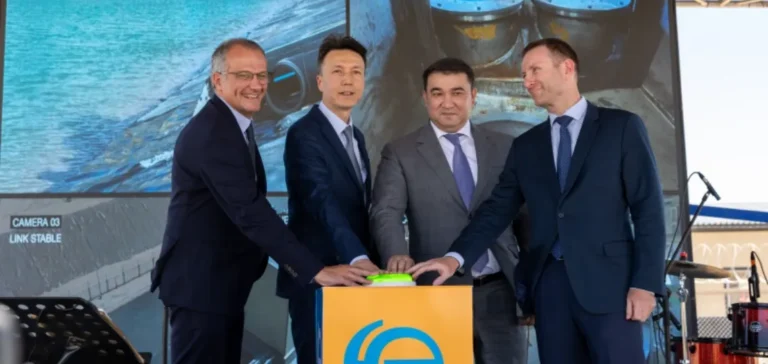KATCO has begun industrial operations at its new uranium mining site in South Tortkuduk, located in southern Kazakhstan. The project, developed in collaboration with shareholders Orano and NAC Kazatomprom JSC, includes a processing plant delivered on schedule after three years of construction. The total investment amounts to $190mn. This development aims to extend the production potential of the Muyunkum deposit, of which South Tortkuduk is an extension.
The site is based on reserves estimated at 46,000 tonnes of uranium. Production from South Tortkuduk will gradually replace the zones currently being exploited. KATCO plans to return to a nominal production rate of 4,000 tonnes of uranium per year starting in 2026. The site uses the In Situ Recovery (ISR) technology, already in place at the company’s other facilities.
A project delivered on time with sustained operational continuity
The construction was completed within the initially announced timeframe, with a strong safety performance. The plant is operated by KATCO’s technical teams, who already run one of the largest ISR complexes in the world. This technology allows for underground uranium recovery without excavation, significantly reducing surface disturbance.
The facilities were designed to optimise extraction and processing flows, incorporating industrial standards aimed at reinforcing the long-term reliability of operations. The opening of South Tortkuduk ensures continuity of KATCO’s activities while meeting the growing global demand for uranium.
Strengthening the Orano–Kazatomprom partnership
The project forms part of the cooperation protocol signed between Orano and Kazatomprom in 2022, intended to deepen industrial synergies between the two entities. The partnership is based on shared technical expertise and a long-term strategy for nuclear sector development.
With an estimated contribution of 7% to global uranium production, KATCO holds a strategic position in the international energy landscape. The launch of South Tortkuduk further consolidates Kazakhstan’s status as a leading global producer while supporting the security of supply for nuclear fuel markets.






















